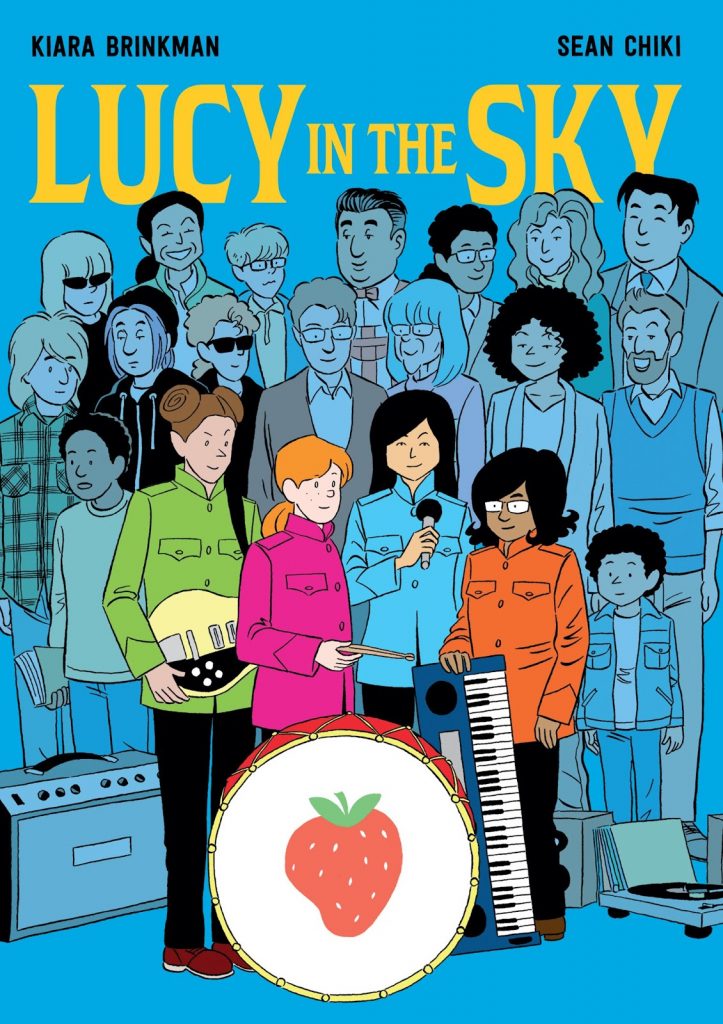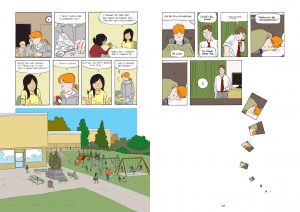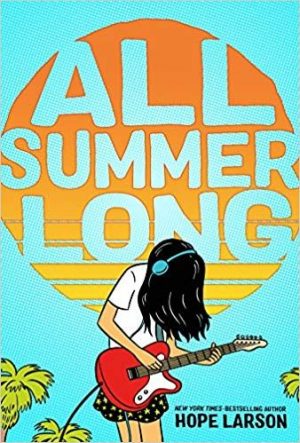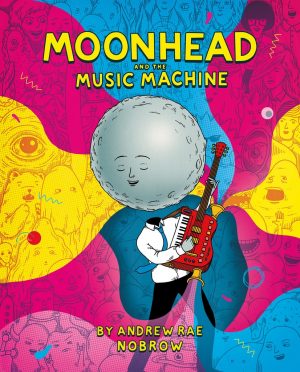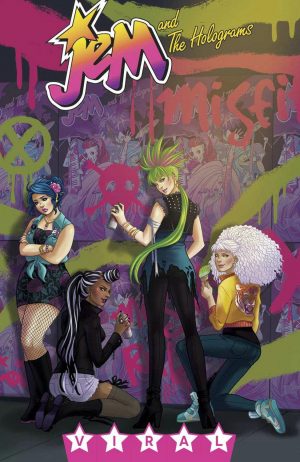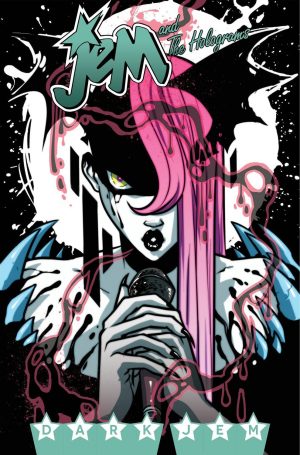Review by Ian Keogh
Lucy is eleven, has some good friends, lives with her father in a nice suburban area, yet feels there’s something missing in her life. She’s not happy that her favourite band charge $18.99 for a CD whose only extra is a poster, when the download is $9.99. A day later, she discovers her father’s old Beatles albums, on vinyl, requiring older creators to explain to young adult readers a) who the Beatles were, b) why Liverpool is different from London, and c) what a vinyl album is and how it’s played. They never stop throughout the story, which hinges so much on music, but Interpol are the only 21st century band namechecked. Kiara Brinkman’s determined to pass on her love of acts from the 1960s and early 1970s music, but is it really what 8-14 year olds really want to read about?
It does tie in to Lucy’s gradual awareness of music’s power and her use of it to work through life’s problems. In Lucy’s case these amount to a grandmother riddled with cancer, a mother separated from Lucy’s father who’s never in the US, a snotty friend, and the onset of puberty. It takes a fair bit of setting up, and combined with the constant references to music made fifty years before Lucy was born, there’s more than a hint of virtue signalling at the start, but Brinkman gradually pulls away from that.
Brinkman has a leisurely storytelling style, or perhaps it’s just the way Sean Chiki breaks the plot down. The entire story is Lucy’s experiences, and plenty of scenes just have her walking from A to B, or lounging around, which is why the pages number just under 300. Chiki has a clear and attractive style, though, and a good way of slipping in a montage illustration, a homage or visual allegory when he can, which is never at the cost of sacrificing the clarity.
That’s a little more ambiguous in Brinkman’s writing, where verité is prioritised over comforting narrative closure. We all have regrets, things happen, and life goes on is the over-riding message. It’s not that Lucy in the Sky lacks charm, but greater focus and stronger narrative would appeal more to the audience.
